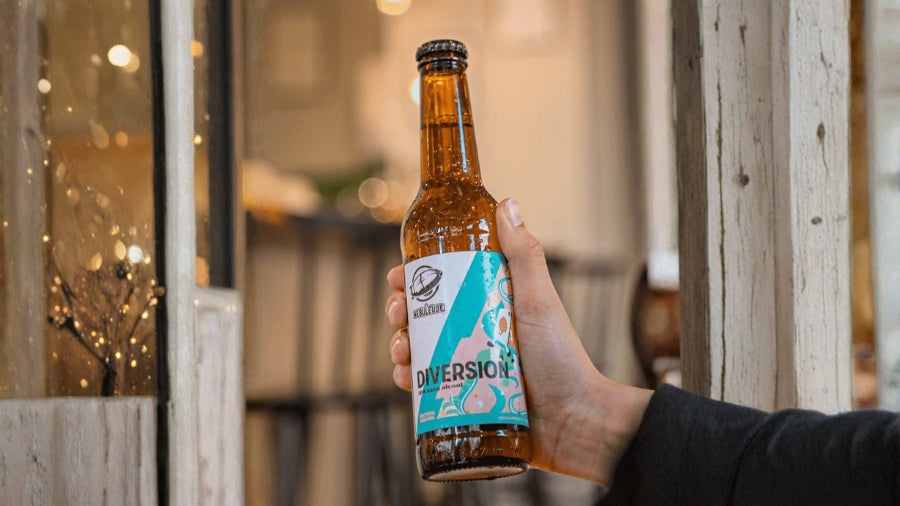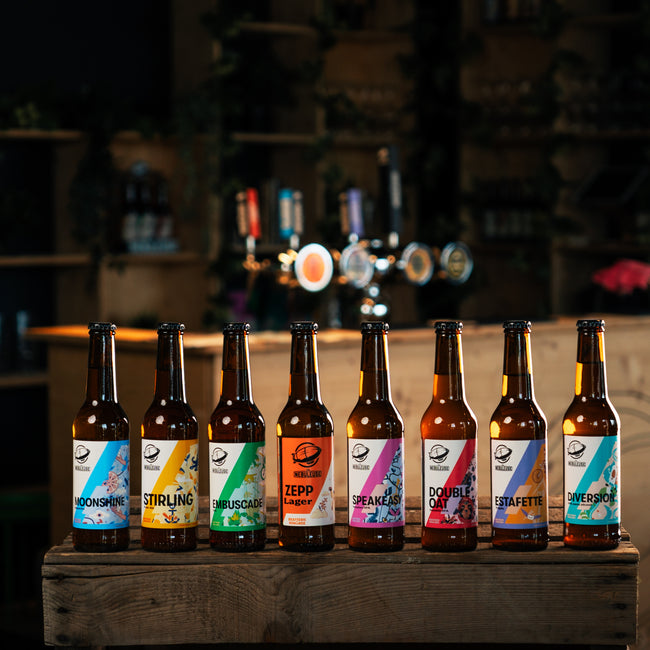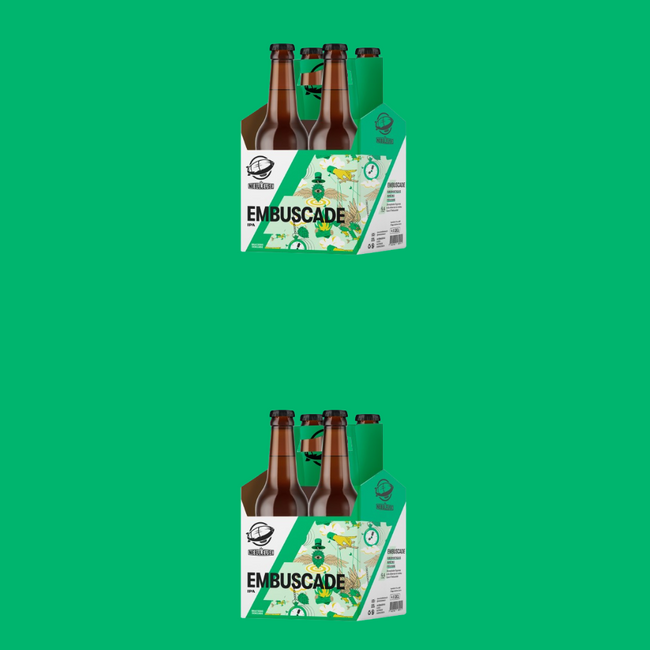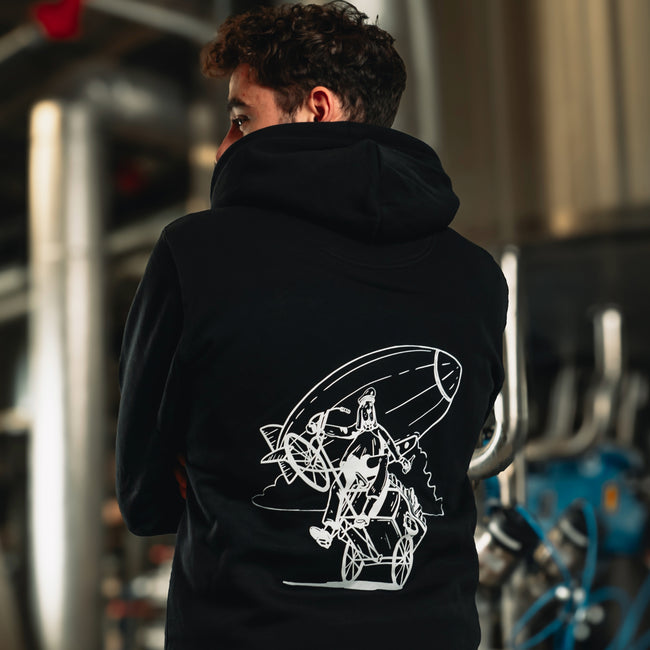Non-alcoholic beers reinvented by craftsmanship

Can a non-alcoholic beer really have flavor? The question is worth asking. Forget everything you thought you knew—we're a long way from the days when non-alcoholic versions tasted like sock juice. Today's brewers are pushing the boundaries to create beers with real character.
This revolution responds to a growing demand from people who want to enjoy the unique taste of craft beer while remaining sober. And no, it's not magic, it's science (and a lot of passion)!
Modern non-alcoholic beers: a taste revolution
The delicate art of dealcoholization
Contrary to popular belief, creating a great non-alcoholic beer isn't simply a matter of removing the alcohol from a regular beer. Brewers have several methods available, each with its own unique characteristics. Reverse osmosis , a sophisticated technique, allows for remarkable flavor preservation but requires significant investment. Controlled fermentation , on the other hand, avoids the production of alcohol from the start—a particularly attractive approach for craft breweries, offering precise flavor control throughout the process.
The real challenge lies in preserving the aromas. Since alcohol is naturally an excellent flavor vector, its absence must be compensated for by perfect mastery of the other components. This is where the brewer's expertise makes all the difference.
How modern technology is revolutionizing taste
Creating a characterful non-alcoholic beer is almost like alchemy—but with more science and fewer mysterious formulas. Fermentation is monitored with surgical precision: temperature, duration, pressure—every parameter directly influences the final flavor profile.
Innovations in alcohol-free brewing begin with the recipe design. Each ingredient is selected for its specific aromatic potential. Special malts, the cornerstones of this revolution, are roasted according to precise profiles to develop flavors that naturally compensate for the absence of alcohol. Hops are chosen not only for their aromatic qualities, but also for their ability to create mouthfeel that recall the complexity of traditional beers.
Innovation and know-how: the example of Diversion
Diversion IPA perfectly illustrates this technical mastery. This tropical, alcohol-free IPA challenges the rules with its explosive citrus notes, the result of expertly orchestrated hopping with Mosaic and Polaris. Its complex flavor profile demonstrates that an alcohol-free beer can have as much personality as its alcoholic cousins.
Its recipe is based on a precise blend of malts: the Pale Ale provides the fundamental malty base, the Carapils ensures the foam and texture in the mouth, while the Caramünch 3 balances the whole with its subtle caramelized notes.
Cold hopping, the key to preserved aromas
Cold hopping is a crucial step in crafting a distinctive non-alcoholic beer. This cold infusion technique extracts the hops' most delicate flavor compounds while avoiding excessive bitterness. The timing and temperature of this process are critical: too long can unbalance the profile; too short, and it won't release enough aromas.
The major advantage of this method for alcohol-free beers lies in the maximum preservation of the essential oils of hops , these precious compounds that give craft beers their characteristic notes of citrus, tropical fruits or flowers. The result? Frank and persistent aromas that have nothing to envy of alcoholic versions.
Health and well-being: the little-known benefits
Non-alcoholic beers offer often-overlooked nutritional benefits. Rich in B vitamins, antioxidants, and minerals from malts and hops, they contribute positively to a balanced diet. Hop polyphenols, in particular, are known for their anti-inflammatory properties.
The absence of alcohol also allows for better hydration , a crucial point for athletes. The complex carbohydrates from malts provide gradual energy, while the naturally present electrolytes promote recovery after exercise.
Tasting reinvented
The absence of alcohol subtly alters the perception of flavors, opening up new taste perspectives. The organoleptic profile develops differently: the attack is more straightforward, the hop aromas unfold immediately, followed by malty notes that gradually reveal themselves. The finish, particularly thirst-quenching, naturally invites the next sip.
Surprising gastronomic pairings
Diversion, with its tropical notes and citrus aromas, opens up a fascinating world of culinary possibilities. It pairs remarkably well with spicy Asian cuisine , where its freshness tempers the heat of the chili pepper while enhancing the flavors. Seafood finds it an ideal partner, its citrus notes highlighting its natural delicacy.
Summer dishes pair particularly well with its aromatic profile: mixed salads, light grilled meats, fish tartares... Its natural freshness enhances the lightness of these preparations. For a more daring experience, it pairs surprisingly well with exotic fruit desserts, creating a surprising dialogue between flavors.
Towards a new beer culture
The rise of non-alcoholic craft beers reflects a profound shift in consumer habits. The pursuit of taste and experience now takes precedence over the mere presence of alcohol. This trend is driving continued innovation in the industry, pushing brewers to push the boundaries of their craft.
The growing quality of alcohol-free beers is contributing to their democratization. They are no longer seen as a default choice but as a desirable alternative , capable of satisfying the most demanding palates. This development reflects a new maturity in the craft beer market , where taste excellence is no longer the preserve of alcoholic versions alone.
Conclusion
Modern non-alcoholic beers prove that innovation and passion can transcend the traditional boundaries of brewing. Thanks to technical advances and brewers' expertise, these creations are establishing themselves as true gastronomic choices.
Whether you're a beer lover looking to diversify your experiences, an athlete focused on recovery, or simply curious about new flavors, non-alcoholic craft beers deserve your full attention. They demonstrate that it's possible to create exceptional beers with just 0.5% alcohol, paving the way for a new era in the history of craft beer.








